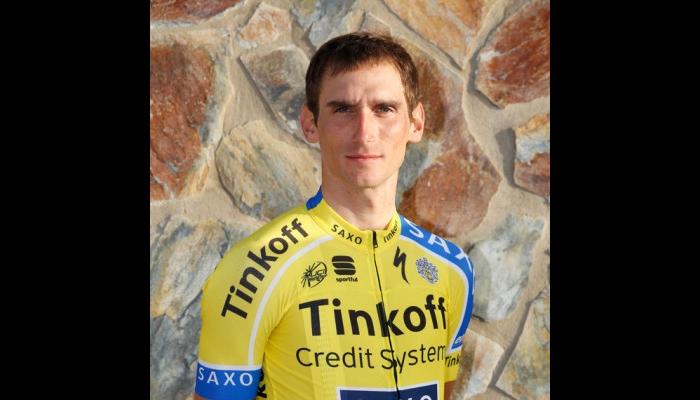- News
- Reviews
- Bikes
- Accessories
- Accessories - misc
- Computer mounts
- Bags
- Bar ends
- Bike bags & cases
- Bottle cages
- Bottles
- Cameras
- Car racks
- Child seats
- Computers
- Glasses
- GPS units
- Helmets
- Lights - front
- Lights - rear
- Lights - sets
- Locks
- Mirrors
- Mudguards
- Racks
- Pumps & CO2 inflators
- Puncture kits
- Reflectives
- Smart watches
- Stands and racks
- Trailers
- Clothing
- Components
- Bar tape & grips
- Bottom brackets
- Brake & gear cables
- Brake & STI levers
- Brake pads & spares
- Brakes
- Cassettes & freewheels
- Chains
- Chainsets & chainrings
- Derailleurs - front
- Derailleurs - rear
- Forks
- Gear levers & shifters
- Groupsets
- Handlebars & extensions
- Headsets
- Hubs
- Inner tubes
- Pedals
- Quick releases & skewers
- Saddles
- Seatposts
- Stems
- Wheels
- Tyres
- Health, fitness and nutrition
- Tools and workshop
- Miscellaneous
- Cross country mountain bikes
- Tubeless valves
- Buyers Guides
- Features
- Forum
- Recommends
- Podcast
 Roman Kreuziger.png (credit: road.cc)
Roman Kreuziger.png (credit: road.cc)Roman Kreuziger to miss Vuelta after CAS rejects appeal
Tinkoff-Saxo rider Roman Kreuziger will miss the Vuelta after the Court of Arbitration for Sport (CAS) rejected his appeal against the provisional suspension imposed on him earlier this month by the UCI as a result of the ongoing investigation into suspicious values in the Czech rider’s biological passport data.
In a press release issued this afternoon, the CAS said that its arbitration panel had heard the parties at a hearing in Lausanne this morning, with Kreuziger hoping to win the appeal so he could compete in the Vuelta and possibly the UCI Road World Championships next month.
The CAS said the panel had dismissed Kreuziger’s appeal and he “remains provisionally suspended pending a decision on his alleged anti-doping rule violation.” It added that it would publish its full award with the grounds for its decision in the coming weeks.
Kreuziger was withdrawn from Tinkoff-Saxo’s Tour de France squad at the end of June when it emerged that he faced questions over his biological passport data.
He was included in the team’s squad for the Tour de Pologne earlier this month, but on the eve of that race the UCI provisionally suspended him, prompting both the rider and his team to claim that he was being treated unfairly and that the UCI was acting outside the scope of its own rules.
Given today’s decision, which followed an expedited process given the timeframe involved, it appears the CAS arbitration panel has rejected those arguments.
Simon joined road.cc as news editor in 2009 and is now the site’s community editor, acting as a link between the team producing the content and our readers. A law and languages graduate, published translator and former retail analyst, he has reported on issues as diverse as cycling-related court cases, anti-doping investigations, the latest developments in the bike industry and the sport’s biggest races. Now back in London full-time after 15 years living in Oxford and Cambridge, he loves cycling along the Thames but misses having his former riding buddy, Elodie the miniature schnauzer, in the basket in front of him.
Latest Comments
- Steve K 8 min 18 sec ago
I dunno, once you've put mudguards on, not sure you'll get more than 28mm
- OldRidgeback 10 min 30 sec ago
Some years ago I was talking with a bloke I met through work. He was a bit of a gear head and admitted having driven his sports car very quickly at...
- OldRidgeback 16 min 31 sec ago
Wow, Coren is commending criminals for their violent robberies. That's quite a mental leap to be encouraging criminality.
- Nick T 7 hours 17 min ago
He lost me in the video when he claimed that as you can raise your heel up to 30,000 times during a ride, the lighter weight will save you energy...
- David9694 10 hours 32 min ago
Wiveliscombe residents urged to join community protest against new car parking charges...
- Rendel Harris 12 hours 20 min ago
It's not the first country to spring to mind I admit but Ridley make some very nice mountainbikes that are being used by the KMC team.
- Fatbagman 12 hours 32 min ago
Someone should point out that Sky lose money on their football channels, how does that fit into the bull they put out? And as for watching free to...
- Rendel Harris 12 hours 34 min ago
To measure chain wear with a ruler you have to be able to measure so precisely that you can tell the difference, measuring from the exact centre of...
- BikingBud 12 hours 41 min ago
"However, he said he was running late and decided to turn left into Norwich Avenue to avoid congestion, when he heard a bang which he said sounded...
Add new comment
3 comments
Yes, more info on why here:
http://cyclingtips.com.au/2014/08/anti-doping-expert-parisotto-explains-...
And this is the system that Saxo-Tinkoff had signed up to.
The bio-passport involves long-term monitoring of blood values, to catch allow irregularities to be caught by comparison. This is by design. It means that sometimes old doping can be caught because old blood parameters don't match more recent ones.
This is by design.
So saying "These bio-passport results are from long ago, why did they take so long to act?! Dicks!" indicates one has misunderstood what the bio-passport is meant to do.
I can't comment on the abnormal results found but I will say they were from some time ago, so why the fcuk have the uci taken so long to act? Pick up the pace, you look like dicks.